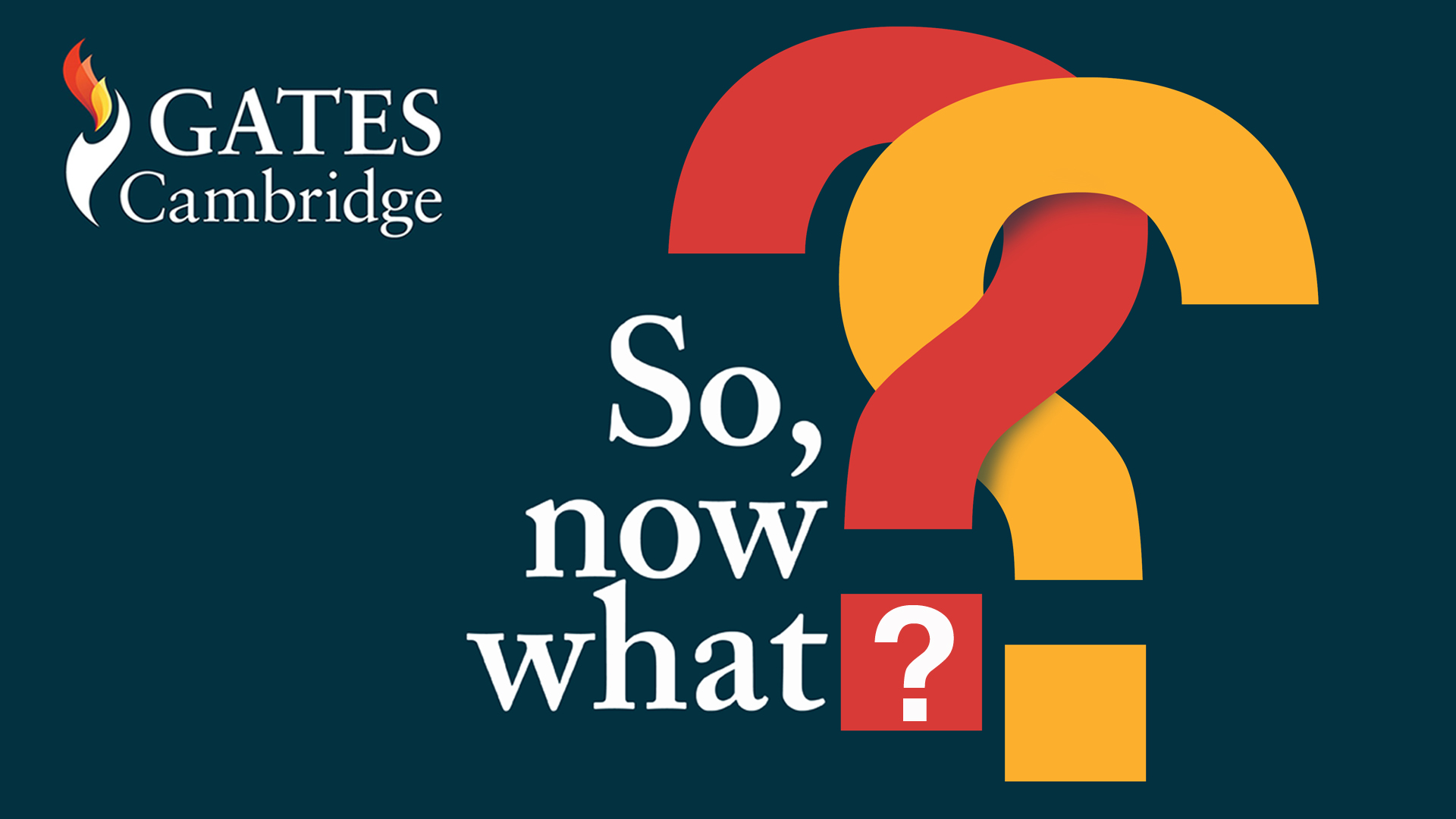
The new monthly podcast will cover eight different areas, from climate economics to global healthcare.
We are very excited to be bringing people a flavour of some of the stimulating, multidisciplinary conversations that Gates Cambridge has enabled and to celebrate the impact that our scholars are having when it comes to tackling some of the world’s toughest issues today.
Professor Eilis Ferran
Gates Cambridge’s podcast So, now what? is for anyone looking for ideas, vision and optimism about how we can practically tackle some of the world’s most complex and challenging problems. Scholars from a range of different backgrounds and disciplines share the actions they are taking to change the world for the better.
The first podcast series in 2024 focused on impact in eight different areas, from economics and environment to culture and global health. Each episode saw scholars in conversation with each other about a wicked global problem, hosted by international journalist Catherine Galloway. It ended with the question So, now what? – with scholars suggesting ways we can all contribute to moving the dial away from despair and towards the kind of practical action that will make a positive difference.
The second series in 2025 had a broader focus, beginning with an episode on the challenges facing young people today and ending with how to address the issues linked to an ageing world. In between were episodes on everything from astronomy to gender equality. A third series is focusing on leadership.
So, now what? generally airs on the last Tuesday of the month.
Professor Eilis Ferran, Provost of the Gates Cambridge Trust, said: “We hope people will enjoy and be inspired by So, now what? We are very excited to be bringing people a flavour of some of the stimulating, multidisciplinary conversations that Gates Cambridge has enabled and to celebrate the impact that our scholars are having when it comes to tackling some of the world’s toughest issues today.”
* You can listen to the first ever episode here:
.
For more information and to listen to other episodes click here.












